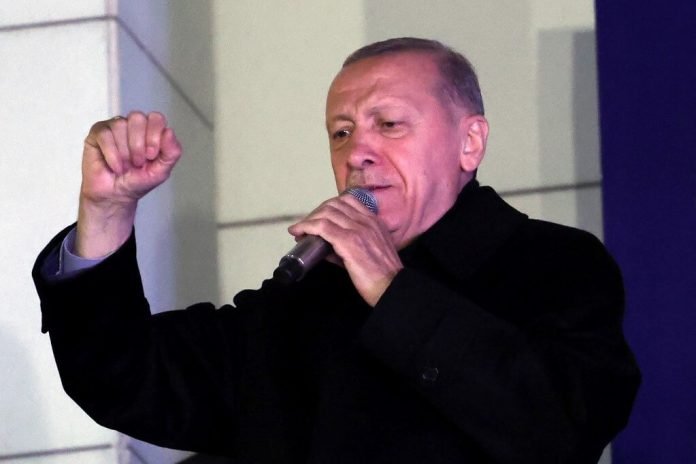
Turkish artist Buğra Erol, 36, has worked between Berlin and İstanbul over the last few years, but his country’s decision to re-elect Recep Tayyip Erdoğan has spurred him to move his studio to Germany for good.
“Life has been difficult for artists like me in the last decade, and the result of the last election was the cherry on the cake,” he told AFP.
“I feel like I spent all my life with the struggle,” said Erol, who first came to Berlin in 2017 in search of more artistic freedom.
Turkish artists and intellectuals living in Germany fear that a whole generation of creative young people will leave Turkey after Erdoğan’s historic election win.
Erdoğan, who enters his third decade of rule with Sunday’s historic victory, has overseen the country’s worst economic crisis since the 1990s, with inflation running at more than 40 percent.
He has also caused growing consternation with his crackdowns on dissent, with thousands of opposition figures and campaigners jailed since an attempted coup in 2016.
Refuge for dissidents
Işıl Eğrikavuk, a performance artist and academic based in Berlin, believes many of her peers will choose to leave Turkey.
“People have been leaving increasingly” since the Gezi Park protests of 2013 and “in the last years these numbers increased also,” she said.
“Some people were waiting for the result of the elections, of course, to determine whether to leave or stay. And I think with this result, the brain drain will continue.”
Eğrikavuk, 42, points to “a bit of relief in seeing that [Erdoğan] won with a very close margin.”
“That shows that he is not so strong any more, half of the country doesn’t want him,” she said.
But she also sees “hopelessness or sadness or despair among the opposition, or people who are more open minded and liberal, who want more freedom.”
There are roughly 3 million people of Turkish origin or descent living in Germany, the largest diaspora outside Turkey.
A clear majority of Turks in Germany voted for Erdoğan in both the first election two weeks ago and the runoff on Sunday.
The so-called Turkish guest workers who arrived in the 1960s were often religious working-class people from rural areas and have passed on their values to their children — many of whom vote for Erdoğan today.
But Germany has also become a refuge for Turkish dissidents in recent years, attracting artists, musicians and academics who have clashed with the government or grown frustrated with restrictions on their freedom.
‘Still hope’
Some politicians in Germany have also expressed disappointment with the election result, including Agriculture Minister Cem Özdemir — who himself has Turkish roots.
Özdemir accused Erdoğan’s supporters in a tweet of celebrating his victory “without having to answer for the consequences of their vote.”
Many people in Turkey would have to continue living in poverty and with restrictions on their freedom, he said. “They are rightly angry. This will have to be talked about!”
Exiled journalist Can Dündar, who has been living in Berlin since 2016 with an arrest warrant out for him in Turkey, also believes many young creatives will now leave Turkey.
“The country is unbearable now for [young people] in every sense, economically, psychologically, sociologically, daily life is destroyed, economic conditions are horrible,” he told AFP.
But Dündar, who was handed down a jail sentence after his Cumhuriyet newspaper published an article criticizing the government, has always intended to return home.
“From the first day, it was my goal to go back and struggle for the re-establishment of Turkish democracy. And I still want to do that,” he said.
He believes “there is still hope” of shifting Turkey away from autocratic rule.
“Turkey is not a proper democracy like France or Germany, but it’s not Belarus or Iran, either,” he said.
Likewise, Erol said he will “always be part of the struggle to live the life we want.
“Istanbul will always be my real home.”
© Agence France-Presse














